13 Promising Health Benefits Of Pomelo
From boosting immunity to aiding weight loss, enjoy all the perks of this yummy fruit!
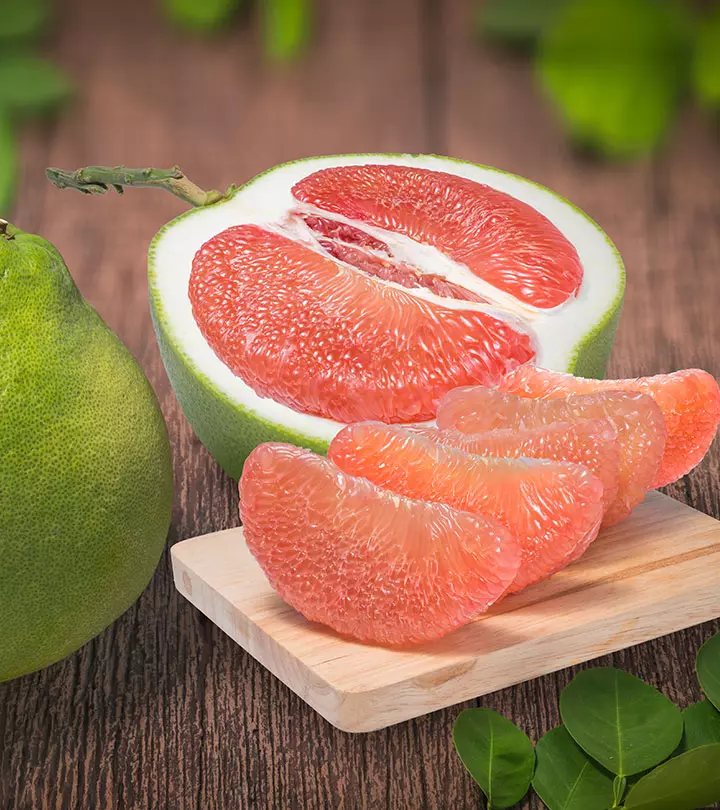
Image: Shutterstock
Pomelos (Citrus maxima) are teardrop-shaped citrus fruits similar to large grapefruits and have many health benefits. The presence of antioxidants, minerals, and vitamin C plays a key role in pomelo benefits (1).
These fruits are native to the Southeast Asian region and have been used in traditional medicine to treat fever, gastrointestinal problems, and cough.
Eating this citrus fruit can help boost immune health, aid digestion, promote weight loss, improve bone health, and regulate blood pressure.
This article discusses the nutrition facts of pomelo, health benefits, how to eat it, and possible drug interactions. Keep reading!
 Know Your Ingredient: Pomelo
Know Your Ingredient: PomeloWhat Is It?
A green citrus fruit with a pink inside that has a sweet taste
What Are Its Benefits?
It aids in digestion, boosts weight loss, and strengthens immunity.
Who Can Consume It?
Anybody can consume it except people on cancer, blood thinning, cholesterol, and hypertensive medications.
How Often?
You can eat one pomelo daily.
Caution
Excess consumption may cause acidity and skin irritation.
In This Article
What Is Pomelo Or Pummelo?
Pomelo fruits are teardrop-shaped and have a mixed taste.
They can weigh up to 20 pounds and taste sweeter than grapefruit. They are very juicy and tangy like tangerine. They are believed to have originated in China around 100 BC.
The outer layer of pomelo is thick and soft and can be peeled easily. The pulp inside comes in a variety of colors, ranging from yellow to pink to red. You can find the fruit growing on citrus trees in the heat of summer and in tropical climates. The fruit is also commonly known as the Gagal fruit, Papanas fruit, and Bablimas fruit.
Cameron, a gardener and YouTuber, tried eating pomelo for the first time and shared his experience. He says, “It is a mild grapefruit and is a kind of weird mix between an orange and grapefruit. It is not bitter, but it is not especially sweet (i).”
 Trivia
TriviaCheck out the nutritional information of this citrus fruit below.
Key Takeaways
- The ascorbic acid in pomelo may help fight off infections.
- The consumption of pomelo juice can reduce muscle cramps due to dehydration.
- Consuming pomelo can prevent hypertension and regulate blood pressure.
- If you are on any medication, consult a doctor before consuming the fruit to avoid any side effects.
Pomelo Nutrition Facts
Pomelos are highly nutritious and a rich source of vitamin C and a wide variety of minerals.
According to the United States Department of Agriculture (USDA), one pomelo fruit contains (1):
- Energy – 231 calories
- Fiber – 6.09 g
- Protein – 4.63 g
- Carbohydrate – 58.6 g
- Vitamin C – 371 mg
- Potassium – 1320 mg
Pomelo also contains a good amount of potassium, which improves heart health. It also contains vitamins A, electrolytes, B1, B2, and C, bioflavonoids, healthy fats, protein, fiber, antioxidants, and enzymes. It contains a high amount of beta-carotene and folic acid that are very beneficial for pregnant women (1).
Find out more about these benefits in the next section.
What Are The Health Benefits Of Eating Pomelo?
With its wide range of nutritional and medicinal properties, pomelo may help in treating many ailments. It is said to improve your immune system and promote hair health. Scroll down to know more.
1. May Boost Immunity
Pomelo fruit is rich in vitamin C. Vitamin C acts as an antioxidant and attacks free radicals. It enhances microbial killing and phagocytosis. The high ascorbic acid content in the fruit enhances white blood cell activity to fight and prevent infections. It can also treat and prevent systemic infections and many respiratory problems (2). Therefore, adding pomelo to your diet may improve your immune system.
2. May Aid Digestion

Pomelo is filled with dietary fiber that is known to improve metabolism. Dietary fiber assists in preserving normal bowel movement, preventing constipation, and avoiding hemorrhoidsi A condition in which the veins in the rectum and anus are swollen and irritated, resulting in pain and bleeding. (3), (4).
A study conducted in China suggests that adding more dietary fiber to your diet may help in maintaining the health of your intestinal microbes (5).
3. May Promote Weight Loss
This is another area where the dietary fiber in pomelo comes into play. Foods high in fiber stay in the stomach for a longer time and reduce regular hunger pangs (6). They also require more chewing time, thus giving the body a long time to feel satisfied and reducing the risk of eating too much. However, more long-term research focused on the weight-loss effect of pomelo is required.
4. May Improve Bone Health

Pomelo contains minerals like calcium, iron, copper, zinc, manganese (1). These minerals are essential for improving and maintaining bone health (7).
Adding pomelo to your diet and physical exercise to your daily routine may help your bones become healthy and strong.
5. May Regulate Blood Pressure
Pomelo juice contains potassium, which is a key nutrient for regulating blood pressure. Potassium is a vasodilator that releases the tension in the blood vessels to maintain blood pressure. Drinking pomelo juice and eating pomelo at night time helps keep your blood pressure in check and prevents hypertensioni High blood pressure; a reading of 140/90 or higher suggests that the blood is pushing too hard against the arterial walls. (8).
6. May Boost Heart Health

Pomelo contains antioxidants like polyphenols, flavonoids, and ascorbic acid that have been found to reduce the levels of triglycerides and LDL (bad) cholesterol and cardiac risk (9). However, more research is required to understand this benefit for humans.
7. May Fight Aging
Pomelo, like grapefruits, is claimed to contain spermidine. Spermidine protects the cells from processes related to aging and cell damage (10). Thus, it may help combat wrinkles and skin aging to make your skin appear youthful, fair, and soft. However, there is very little scientific evidence supporting the effect of spermidine in pomelo and its effect on skin health. Though using citrus fruits for skin is beneficial, more research is needed to confirm pomelo’s efficacy.
Pomelo fruit extract has also been found to help in preventing advanced glycation end products (AGEs)-mediated diabetic complications (11).
8. Fights Infections
Pomelo has antibacterial and antifungal properties that help in treating certain types of infections. A study conducted by the Vietnam National University found pomelo essential oil to be effective against the fungus Penicillium expansum (12).
A study conducted by the University of Bucharest found that pomelo essential oil inhibits the development of bacterial biofilm on soft contact lenses (13).
However, more studies are required to understand the effect of pomelo on other microbial infections.
9. May Prevent Cramping
Deficiency of fluids, lack of hydration, and lack of electrolytes (such as sodium, potassium, and magnesium) are the root causes of muscle cramps (14). Pomelo is a rich source of potassium (1). Therefore, it is possible that drinking pomelo juice may supply your body with the fluids and electrolytes needed to prevent muscle cramps.
10. May Reduce The Risk Of Cancer
The polysaccharides present in pomelo peels may help in fighting cancerous tumors (15). The leaves of pomelo fruit also possess anticancer and antitumor properties (16).
Naringenin, an antioxidant and anti-inflammatory compound found in citrus fruit, has been found to prevent inflammation and inhibit the growth of lung cancer, prostate cancer, and pancreatic cancer cells in experimental studies (17), (18), (19). However, more research is required to understand the real-world cancer prevention effect of pomelo.
11. May Help Manage Diabetes
Pomelo may help in diabetes management. A study conducted on 20 people with diabetes found that though pomelo has a high glycemic index (Gi), it can serve as a low glycemic loadi These foods contain slow-digesting carbohydrates that lead to slower and lower increases in blood glucose and insulin levels. (GL) fruit if consumed in limited amounts. Thus, it may help in maintaining blood sugar levels in people with diabetes (20).
12. May Promote Healthy Gums

Pomelo fruit is a great source of vitamin C (ascorbic acid) (1). Ascorbic acid deficiency has been found to be associated with the development of gingivitisi A type of gum disorder that results in inflamed gums from bad dental hygiene and can lead to tooth loss. (21). Therefore, you may start eating pomelo to strengthen your gums and keep dental problems at bay.
13. May Improve Hair Health
Pomelos are rich in some minerals like zinc, iron, and vitamins A, B6, B12, and E (1). All of these nutrients and minerals help in improving hair health (22).
After reading about these promising pomelo benefits, you must be wondering how to eat it. Check out the next section to know more.
How To Eat A Pomelo
Pomelo is not the easiest fruit to peel or eat because of its thick rind. Pomelo fruit skin turns yellow when it ripens. It can be consumed fresh or made into a juice, beverage, or marmalade. Skinned segments of pomelo are used in salads, desserts, and preserves. Fresh or dried pomelo rinds are used in soups and meat stews.
Here are the steps to peel and cut a pomelo:
- Step 1: Use a sharp knife to cut off the cap of the fruit. (You may have to cut up to an inch, depending on the size of the pomelo.)
- Step 2: Make 8-10 vertical slices around the outside of the fruit, starting from the cut end.
- Step 3: Pull the thick rind down and away from the fleshy interior, which looks a lot like an orange. Pull the rind off the fruit completely.
- Step 4: Pull the fleshy sections apart and remove the seeds.
- Step 5: Discard the excess fibrous material and enjoy!
Pomelo is also used in cooking many delicious dishes. Check out some tasty recipes below!
Vietnamese Pomelo Salad
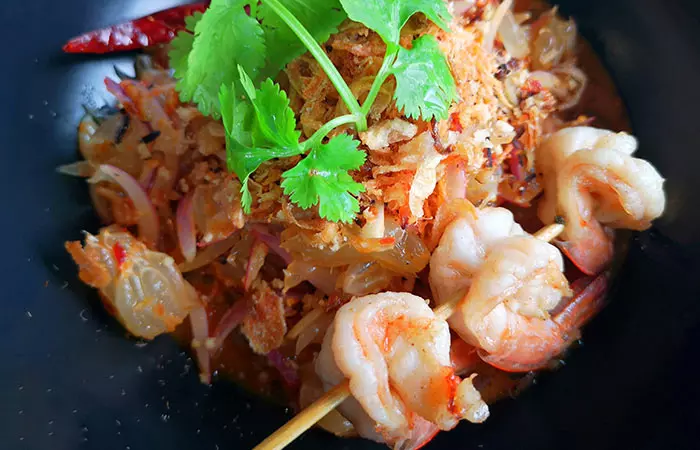
Ingredients:
- 240 grams of large shrimp (peeled and deveined)
- 120 grams of chicken breast (boneless and skinless)
- 1/4 cup of mint leaves (chopped)
- 2 tablespoons of chopped cilantro (leafy tops only)
- 1/4 cup of macadamia nuts (chopped)
- 1 medium pomelo
- 2 tablespoons of shallots (crispy caramelized)
- 1/2 teaspoon of salt
- 1 carrot(peeled and cut into tiny pieces)
- 1 tablespoon lime juice
- 1 tablespoon fish sauce
- 1/4 teaspoon sugar
- 1 green chili (chopped)
- 3 cloves of garlic (chopped)
Procedure:
- Fill 2/3 of a small saucepan with water and add salt to it.
- Bring it up to a boil on medium heat.
- When the water starts to boil, add the shrimp.
- When the shrimps start curling up, remove them with the help of a slotted spoon. Set them aside to cool down.
- Boil the same water and add chicken to it. Turn off the heat when bubbles start forming at the rim.
- Cover the pot for about 20 minutes to cook the flesh. Then, remove the chicken and set it aside to cool.
- Cut the shrimp diagonally into large pieces.
- Speck the chicken and set it aside.
- Cut off the ends and pith of the pomelo to expose the pinkish flesh. Use a knife or fingers to peel the flesh from its skin. Separate the flesh into bite-sized pieces and put them in a bowl.
- For the dressing, mix lime juice, fish sauce, sugar, green chilis, and garlic in a small bowl. Stir it to dissolve the sugar.
Add the chicken, shrimp, mint, carrot, macadamia nuts, cilantro, mint, fried shallots, and dressing to the bowl of pomelo. Toss it to mix the ingredients well.
Pomelo Smoothie
Ingredients:
- 1 cup pomelo pieces (peeled and deseeded)
- 1 banana (sliced)
- 1/2 cup Greek yogurt
- 1/2 cup orange juice (or coconut water)
- 1 tablespoon honey (optional)
- Ice cubes (as needed)
Procedure
:
- Add the pomelo pieces, banana slices, Greek yogurt, and orange juice in a blender.
- Blend until smooth and creamy.
- Taste the smoothie and add honey if you like it sweeter.
- Add ice cubes and blend again for a refreshing taste.
- Pour into a glass and enjoy!
Pomelo Salsa
Ingredients:
- 1 cup pomelo segments (peeled and chopped)
- 1 small red onion (finely chopped)
- 1 jalapeño pepper (deseeded and finely chopped)
- 1/4 cup fresh cilantro (chopped)
- Juice of 1 lime
- Salt and pepper to taste
- 1 tablespoon olive oil (optional)
Procedure:
- Combine the chopped pomelo segments, red onion, jalapeño, and cilantro in a bowl.
- Squeeze the lime juice over the mixture and season with salt and pepper to taste.
- Drizzle with olive oil and mix well.
- Let the salsa sit for about 10 minutes to allow the flavors to blend.
- Serve with tortilla chips or as a topping for grilled fish or chicken.
 Quick Tip
Quick TipPeople often confuse pomelo with grapefruit due to their similar appearances. However, they are distinct citrus fruits with subtle differences. Learn more about them in the next section.
Pomelo Vs. Grapefruit
Pomelo is the largest citrus fruit and has a sweet and mildly tangy flavor. It has a thick, easy-to-peel rind. Conversely, grapefruit has a bitter, more tart taste and is notably smaller in size.
While both fruits are rich in antioxidants, pomelo has a lower calorie and sugar content compared to grapefruits. Also, pomelos contain slightly more vitamin C (1), (23).
These distinct qualities can help guide you when you are choosing between these citrus fruits for your next meal.
Before you start eating pomelos, please check out the safety precautions you need to keep in mind.
Possible Drug Interactions
Pomelo may interact with certain medications that possess anticancer, antihypertensive, anticoagulant, and cytochrome P450 activities. People who are taking any medication should consult a doctor before consuming this fruit (24).
People who are allergic to citrus fruit should avoid eating pomelo.
Infographic: Amazing Health Benefits Of Pomelo Fruit
You are sure to look forward to eating pomelo once you get to know the amazing benefits of the summer fruit. This tangy fruit is not only tasty but is also rich in vitamin C, which improves digestion and immunity and offers other important benefits. Check out the infographic below to learn more about the benefits of this fantastic citrus fruit!

Illustration: StyleCraze Design Team
The benefits of pomelos are numerous. This citrus fruit is loaded with vitamin C. Pomelos can boost immunity and improve bone, heart, oral, and hair health. They can also combat signs of aging, manage diabetes, reduce cancer risk, prevent cramps, fight infections, and regulate blood pressure. However, this fruit may interact with certain medications. Hence, if you are on any medication, talk to your doctor before consuming pomelos.
Frequently Asked Questions
Who should not eat pomelo?
Meghan Novoshielski, Registered Dietitian/Nutritionist, says, “Pomelo is a super nutritious fruit with many health benefits, but it’s not for everyone. Like grapefruit, pomelo contains compounds that block the breakdown of certain medications, including immunosuppressants and those that treat high cholesterol, anxiety, and diabetes.”
Is pomelo good for the kidneys?
According to Novoshielski, “Pomelo contains a lot of vitamin C. It is a powerful antioxidant that can protect the health of your kidneys, as well as other organs in your body. However, large doses of vitamin C can cause a buildup of oxalate in the urine, which can lead to kidney stones and other problems. For this reason, most people should avoid concentrated pomelo supplements, and people with kidney problems should discuss pomelo intake with their doctor.”
Is pomelo good for hemoglobin?
Novoshielski says, “Yes. As a fruit rich in vitamin C, pomelo can help improve the absorption of iron from the foods you eat. Iron is needed for the production of hemoglobin to prevent conditions like anemia.”
Is pomelo good for urine infection?
“Some research has shown that the antioxidants found in pomelo can protect against the recurrence of urinary tract infections when taken on a regular basis. However, pomelo is unlikely to be effective in treating UTIs,” says Novoshielski.
How long do pomelos last?
Pomelos last up to two weeks if you keep them in a refrigerator and one week at room temperature. But, once you peel a pomelo, you must eat it immediately.
Can you eat pomelo seeds?
No, pomelo seeds are not edible. However, you can plant them as the seeds of pomelo are mono-embryonic and helpful in producing seedlings.
When should I buy pomelos?
You can buy pomelos all round the year, but they are the most delicious between December and February.
Is pomelo good for fatty liver?
Yes. Pomelo and its peel contain phenolic compounds and antioxidants, which may help prevent diet-induced non-alcoholic fatty liver disease (25).
Can you eat pomelo on an empty stomach?
No. Consuming citrus fruits like pomelo on an empty stomach may cause the body to produce more acid and cause gastrointestinal issues.
Why is pomelo bitter?
Pomelo isn’t bitter; it has a sweet and slightly tart taste. However, its peel and the white, thick membrane surrounding the juice vesicles are extremely bitter. Therefore, the fruit may taste bitter if the pomelo isn’t peeled correctly and still has the white membrane attached to it.
Illustration: Promising Health Benefits Of Pomelo
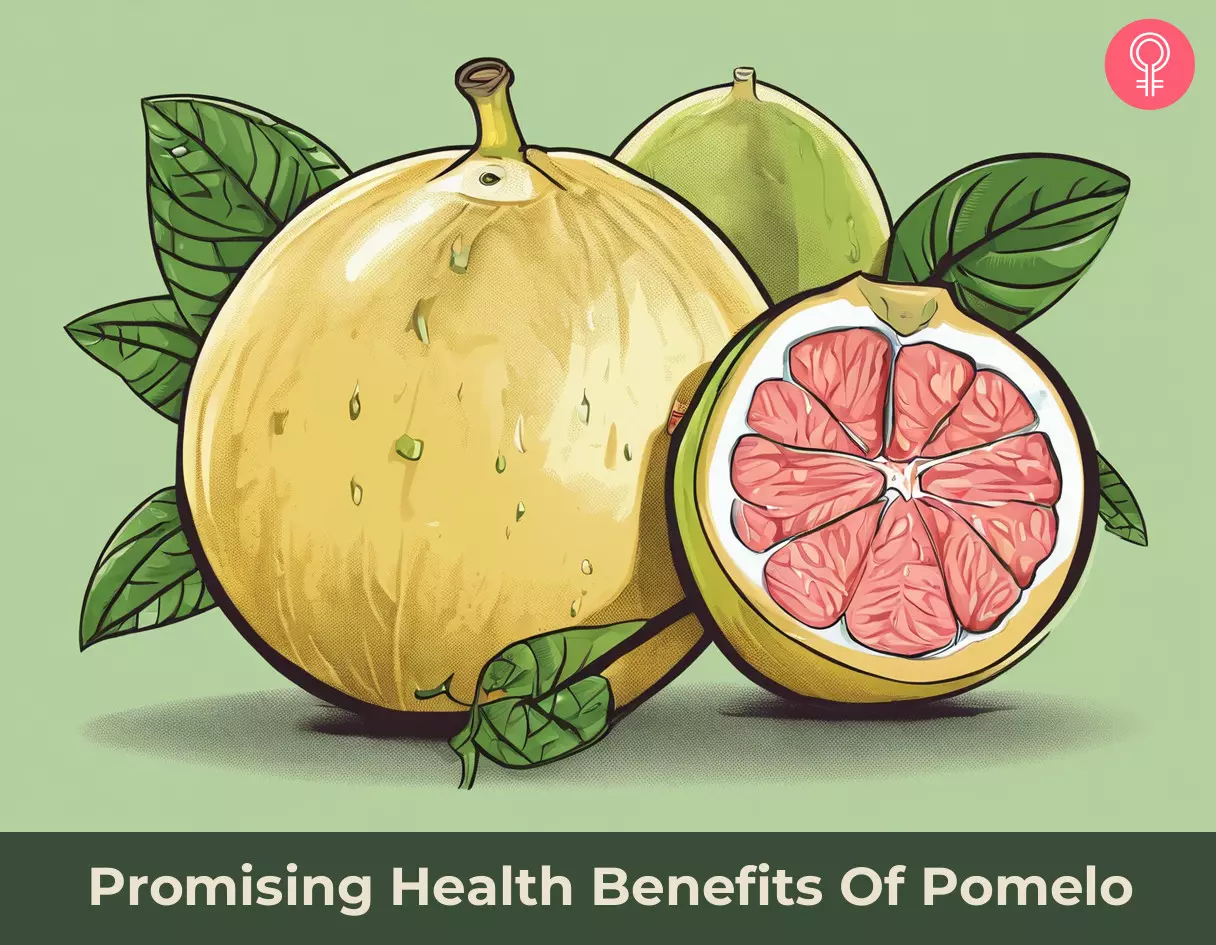
Image: Stable Diffusion/StyleCraze Design Team
References
Articles on StyleCraze are backed by verified information from peer-reviewed and academic research papers, reputed organizations, research institutions, and medical associations to ensure accuracy and relevance. Read our editorial policy to learn more.
- Pummelo, Raw, FoodData Central, US Department of Agriculture.
https://fdc.nal.usda.gov/fdc-app.html#/food-details/167754/nutrients - Vitamin C and Immune Function, Nutrients, US National Library of Medicine, National Institutes of Health.
https://www.ncbi.nlm.nih.gov/pmc/articles/PMC5707683/ - Health benefits of dietary fiber, Nutrition Reviews, US National Library of Medicine, National Institutes of Health.
https://pubmed.ncbi.nlm.nih.gov/19335713/ - Understanding the Physics of Functional Fibers in the Gastrointestinal Tract: An Evidence-Based Approach to Resolving Enduring Misconceptions about Insoluble and Soluble Fiber, Journal of the Academy of Nutrition and Diabetics, US National Library of Medicine, National Institutes of Health.
https://pubmed.ncbi.nlm.nih.gov/27863994/ - Effect of Functional Oligosaccharides and Ordinary Dietary Fiber on Intestinal Microbiota Diversity, Frontiers in Microbiology, US National Library of Medicine, National Institutes of Health.
https://pubmed.ncbi.nlm.nih.gov/28979240/ - Functional foods to promote weight loss and satiety, Current Opinion in Clinical Nutrition and Metabolic Care, US National Library of Medicine, National Institutes of Health.
https://pubmed.ncbi.nlm.nih.gov/25159561/ - Essential Nutrients for Bone Health and a Review of their Availability in the Average North American Diet, The Open Orthopaedics Journal, US National Library of Medicine, National Institutes of Health.
https://www.ncbi.nlm.nih.gov/pmc/articles/PMC3330619/ - Mineral Content of the Pulp and Peel of Various Citrus Fruit Cultivars, Biological Trace Element Research, US National Library of Medicine, National Institutes of Health.
https://www.ncbi.nlm.nih.gov/pmc/articles/PMC6944645/ - Antioxidant Potential, Subacute Toxicity, and Beneficiary Effects of Methanolic Extract of Pomelo (Citrus grandis L. Osbeck) in Long Evan Rats, Journal of Toxicology, US National Library of Medicine, National Institutes of Health.
https://pubmed.ncbi.nlm.nih.gov/31281355/ - Spermidine delays aging in humans, Open-Access Impact Journal on Aging, US National Library of Medicine, National Institutes of Health.
https://www.ncbi.nlm.nih.gov/pmc/articles/PMC6128428/ - The protective effects of pomelo extract (Citrus grandis L. Osbeck) against fructose-mediated protein oxidation and glycation, EXCLI Journal, US National Library of Medicine, National Institutes of Health.
https://pubmed.ncbi.nlm.nih.gov/26966424/ - Comparison of antifungal activities of Vietnamese citrus essential oils, Natural Product Research, US National Library of Medicine, National Institutes of Health.
https://pubmed.ncbi.nlm.nih.gov/22799453/ - The inhibitory activity of pomelo essential oil on the bacterial biofilms development on soft contact lenses, Roumanian Archives of Microbiology and Immunology, US National Library of Medicine, National Institutes of Health.
https://pubmed.ncbi.nlm.nih.gov/21434591/ - Does a Reduction in Serum Sodium Concentration or Serum Potassium Concentration Increase the Prevalence of Exercise-Associated Muscle Cramps?, Journal of Sports Rehabilitation, US National Library of Medicine, National Institutes of Health.
https://pubmed.ncbi.nlm.nih.gov/25945453/ - Preliminary Structural Characteristics of Polysaccharides from Pomelo Peels and Their Antitumor Mechanism on S180 Tumor-Bearing Mice, Polymers, US National Library of Medicine, National Institutes of Health.
https://pubmed.ncbi.nlm.nih.gov/30966454/ - Antitumor Activity of Citrus maxima (Burm.) Merr. Leaves in Ehrlich’s Ascites Carcinoma Cell-Treated Mice, ISRN Pharmacology, US National Library of Medicine, National Institutes of Health.
https://pubmed.ncbi.nlm.nih.gov/22084708/ - Naringenin inhibits migration of lung cancer cells via the inhibition of matrix metalloproteinases-2 and -9, Experimental and Therapeutic Medicine, US National Library of Medicine, National Institutes of Health.
https://pubmed.ncbi.nlm.nih.gov/28352360/ - Naringenin-Induced Apoptotic Cell Death in Prostate Cancer Cells Is Mediated via the PI3K/AKT and MAPK Signaling Pathways, Journal of Cellular Biochemistry, US National Library of Medicine, National Institutes of Health.
https://pubmed.ncbi.nlm.nih.gov/27606834/ - Naringenin causes ASK1-induced apoptosis via reactive oxygen species in human pancreatic cancer cells, Food and Chemical Toxicology, US National Library of Medicine, National Institutes of Health.
https://pubmed.ncbi.nlm.nih.gov/27838343/ - Glycemic index, glycemic load, and glycemic response to pomelo in patients with type 2 diabetes, Journal of Huazhong University of Science and Technology, US National Library of Medicine, National Institutes of Health.
https://pubmed.ncbi.nlm.nih.gov/29058284/ - The effect of controlled ascorbic acid depletion and supplementation on periodontal health, Journal of Periodontology, US National Library of Medicine, National Institutes of Health.
https://pubmed.ncbi.nlm.nih.gov/3462381/ - The Role of Vitamins and Minerals in Hair Loss: A Review, Dermatology and Therapy, US National Library of Medicine, National Institutes of Health.
https://pubmed.ncbi.nlm.nih.gov/30547302/ - Grapefruit, raw, pink and red, all areas, FoodData Central, US Department of Agriculture.
https://fdc.nal.usda.gov/fdc-app.html#/food-details/174673/nutrients - Grapefruit–medication interactions: Forbidden fruit or avoidable consequences?, CMAJ, US National Library of Medicine, National Institutes of Health.
https://www.ncbi.nlm.nih.gov/pmc/articles/PMC3589309/ - The Regulatory Effects of Citrus Peel Powder on Liver Metabolites and Gut Flora in Mice with Non-Alcoholic Fatty Liver Disease (NAFLD)
https://www.ncbi.nlm.nih.gov/pmc/articles/PMC8701357/
Read full bio of Mayuri Aavula
Read full bio of Sindhu Koganti
Read full bio of Ravi Teja Tadimalla
Read full bio of Payal Karnik





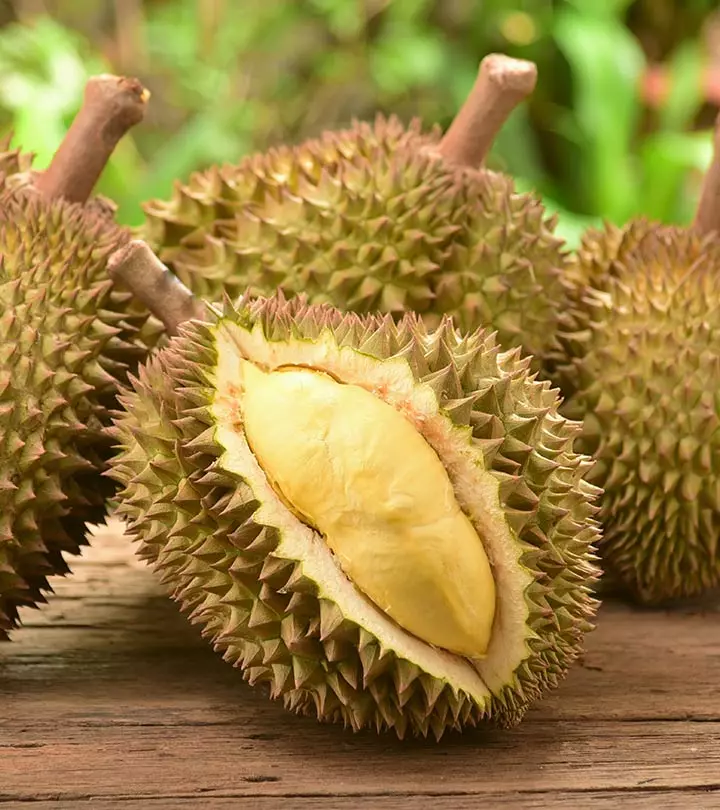
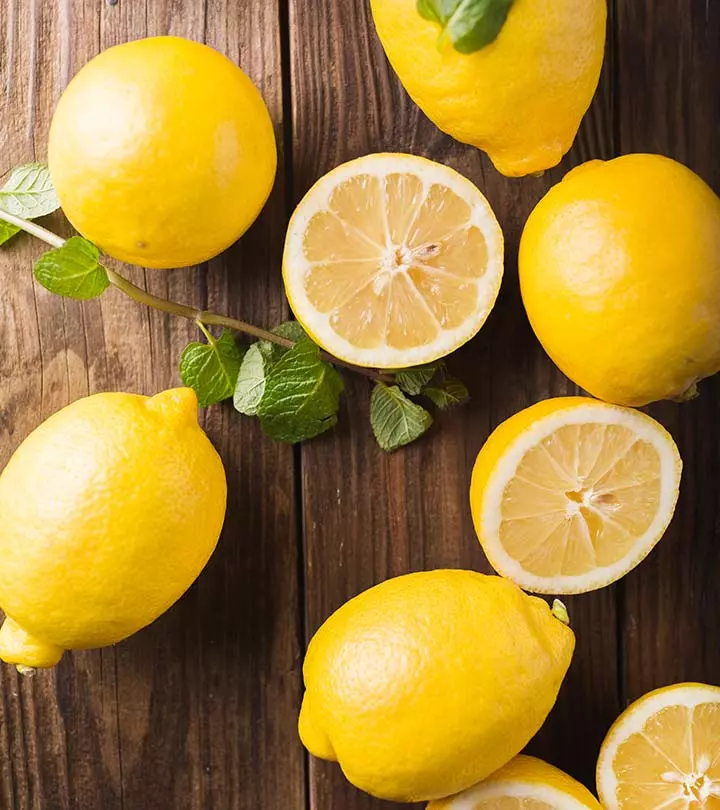

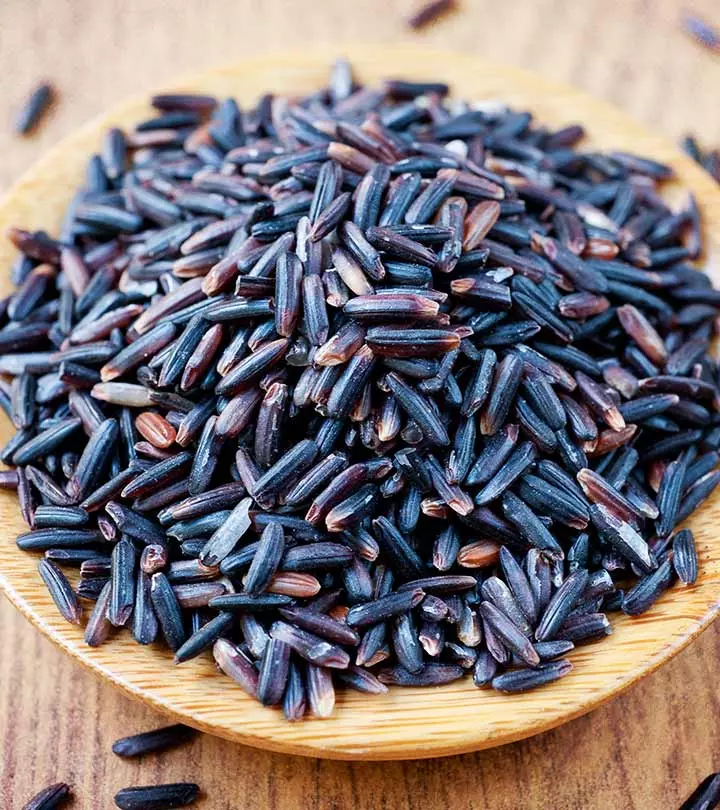
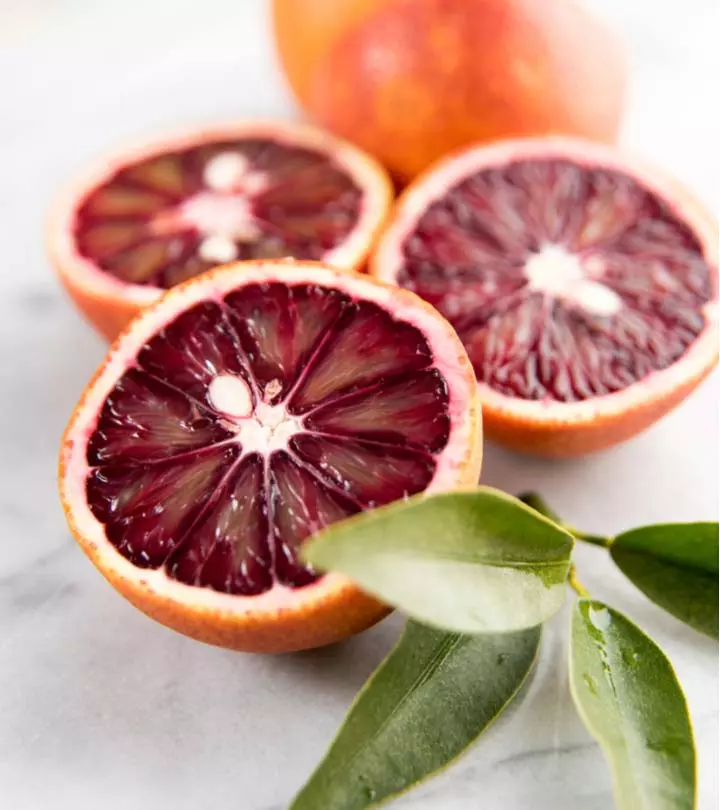


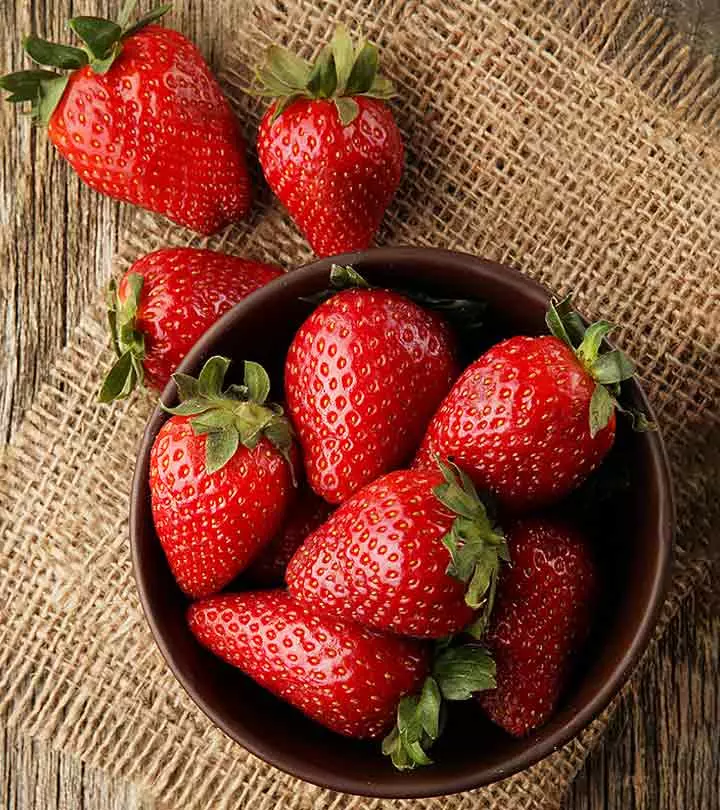



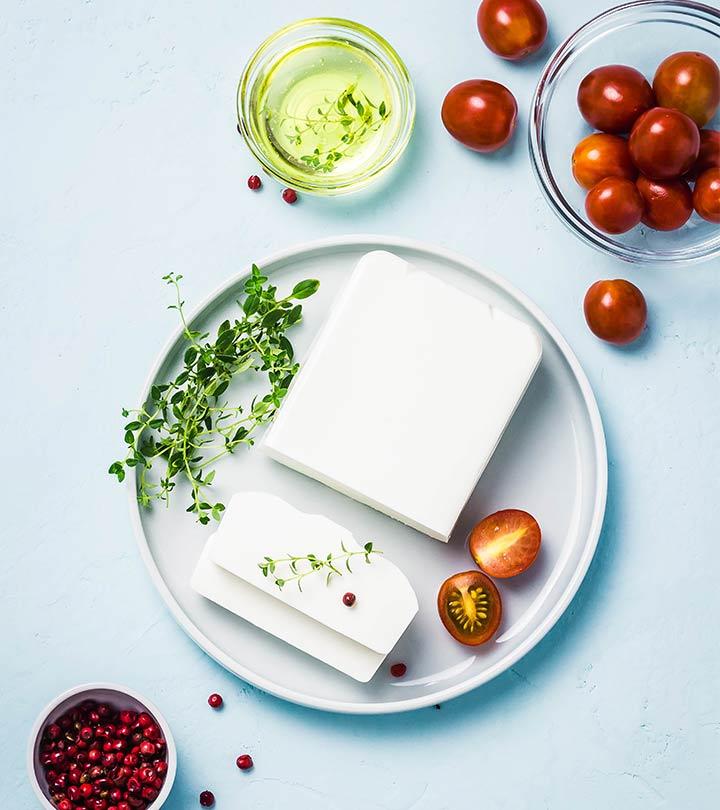
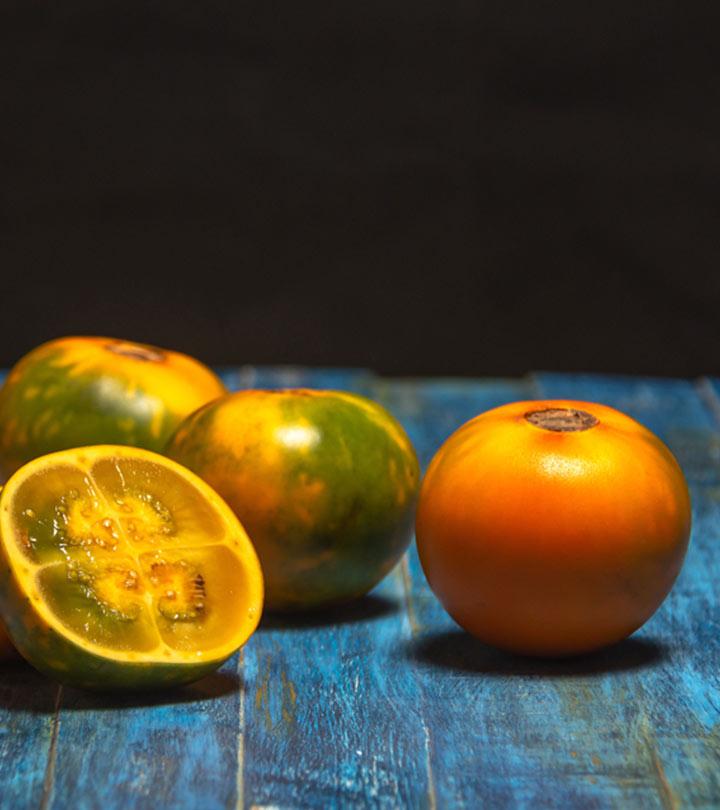
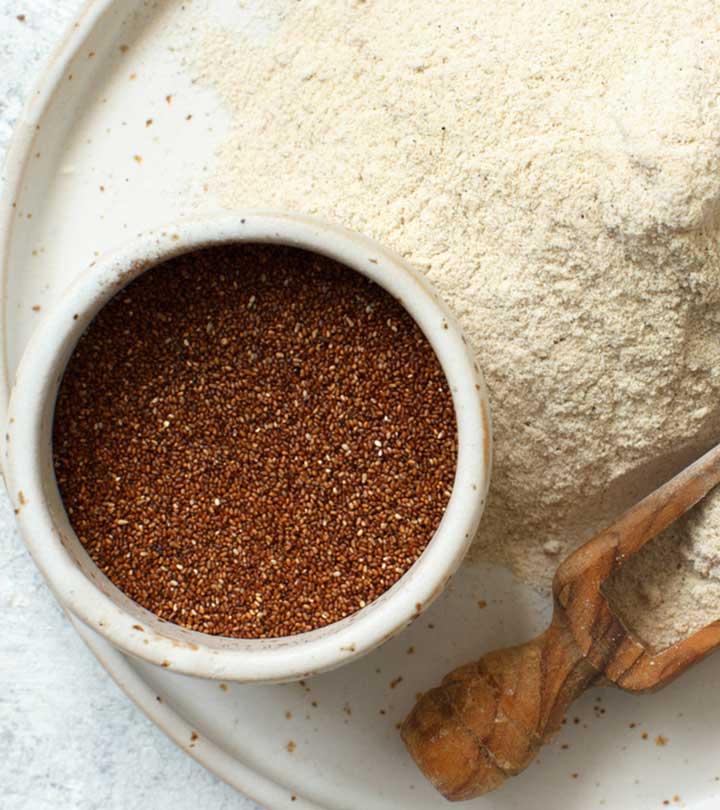

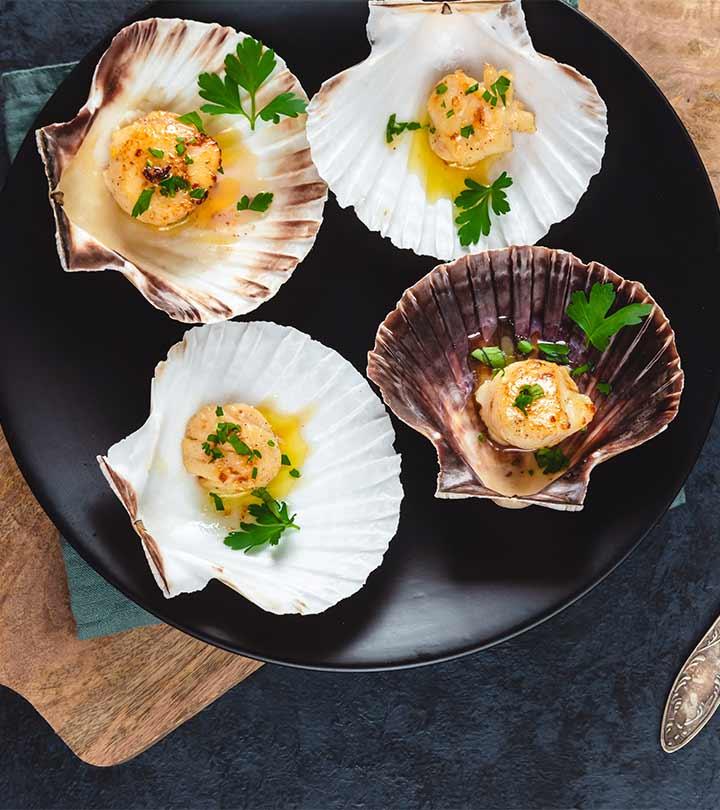

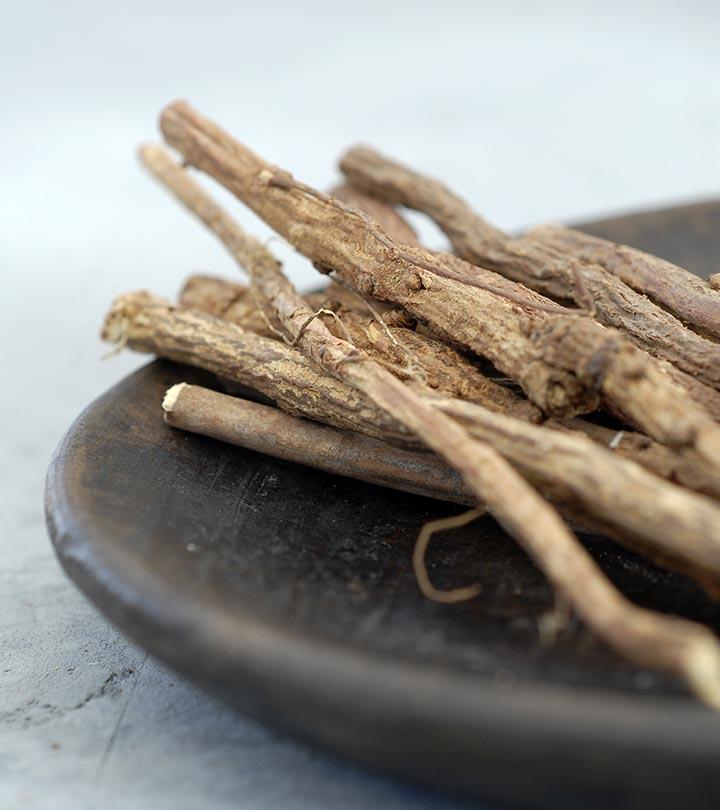


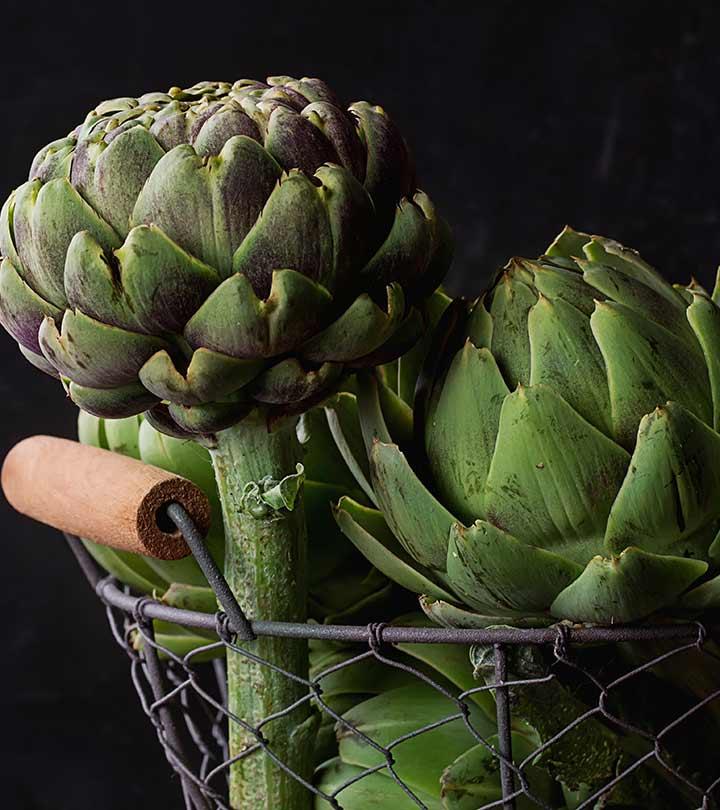
Community Experiences
Join the conversation and become a part of our empowering community! Share your stories, experiences, and insights to connect with other beauty, lifestyle, and health enthusiasts.